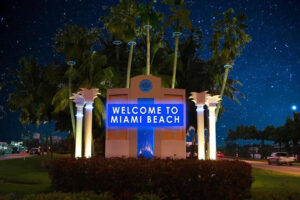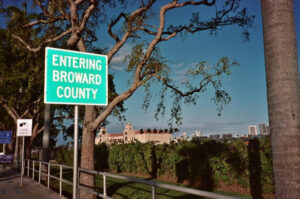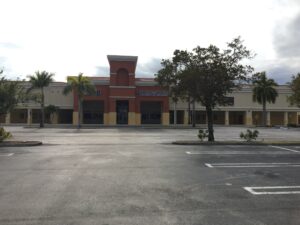
Photo courtesy Kayla Walton
When you think of Miami, you think of the sun, the beaches, the nightclubs, and the beautiful palm trees. But due to recent cases of COVID-19, the city of Miami had been issued to close all nonessential businesses and settings for social gatherings. Places such as bars, nightclubs, beaches, recreational parks, movie theatres, and so on.
The virus has impacted the livelihood of millions of citizens, especially students who attend primary and secondary schools. Their education has reverted to virtual learning for the remainder of the school year.
First-year, Pre-Physical Therapy student, Jaden Gelin has been a resident of Miami Gardens, Fl all his life, and just like every student in the country, the virus affects him educationally. By saying as though his life and education are at standstills due to the illness.
“COVID-19 is affecting my life in a negative way. I feel as if my life is on pause.” Gelin said. “College students weren’t able to enjoy themselves during their spring break, and high school seniors are suffering, not being able to enjoy their senior events.”
Gelin describes his emotions towards the COVID-19 pandemic as annoyed, worried, and tired.

Photo courtesy Kayla Walton
Once online classes have started, there are those students who would not have done courses online. Second-Year Business student, Christelle Haygood, a resident of Broward County, Fl, says that online classes are even more complicated due to work that is given to students to accommodate the transition to online learning.
“Online classes are tricky,” Haygood says. “But it’s challenging to me because it’s so much work that has been thrown at us due to remote learning,” Haygood said. “If it were up to me, I wouldn’t do online classes.”
The virus has also made it extremely hard for those who are usually outside of their homes. As a result of the recently declared ‘Stay-At-Home’ order and daily curfews from Governor Ron Desantis, citizens can only leave their homes for essential purposes such as doctor appointments, pharmaceutical reasons, health reasons, and so on. But for the youth, it’s complicated seeing as though we leave our homes for just about anything.
Haygood then mentions that due to the circumstances we have, you can’t go anywhere, nor do any activities, and due to the high amount of cases in both cities, it makes it even more dangerous to be outdoors and around others.
“I feel that I can’t go anywhere without COVID-19 being there,” Haygood said. “That’s why I stayed in Broward because both cities have high numbers.”
Haygood describes her feelings towards the COVID-19 pandemic as scared, attentive, and ready.
Being a resident of one of the most highly affected areas by the Coronavirus can be scary and, at times, surprising.

Photo courtesy Kayla Walton
First-Year Architecture student Dene Garrett says being in a city with people who do what they want despite the circumstances of the city, makes her more cautious and reluctant to isolation and quarantine.
“It’s frightening, but expected, the type of people you find in my city are those who are pretty much going to do whatever they want,” Garrett said. “It seems like regular, old Broward county to me, which is sad, but it ultimately gives you an overview of Broward residents as a whole.”
Garrett describes her emotions towards the COVID-19 pandemic as unsure, content, and scared.
As of April 3, 2020, the State of Florida has surpassed 10,000 Coronavirus cases with the death toll reaching 170 deaths.
Miami-Dade County continues to lead the state with 3,364 cases, about 32 percent of the state’s total. Broward County is second with 1,598 cases.
The death toll in Miami-Dade rose to 25 Friday, April 3, 2020, while Broward had 22 COVID-19-related deaths and is subject to increase from now until the virus is cared for to be vaccinated.